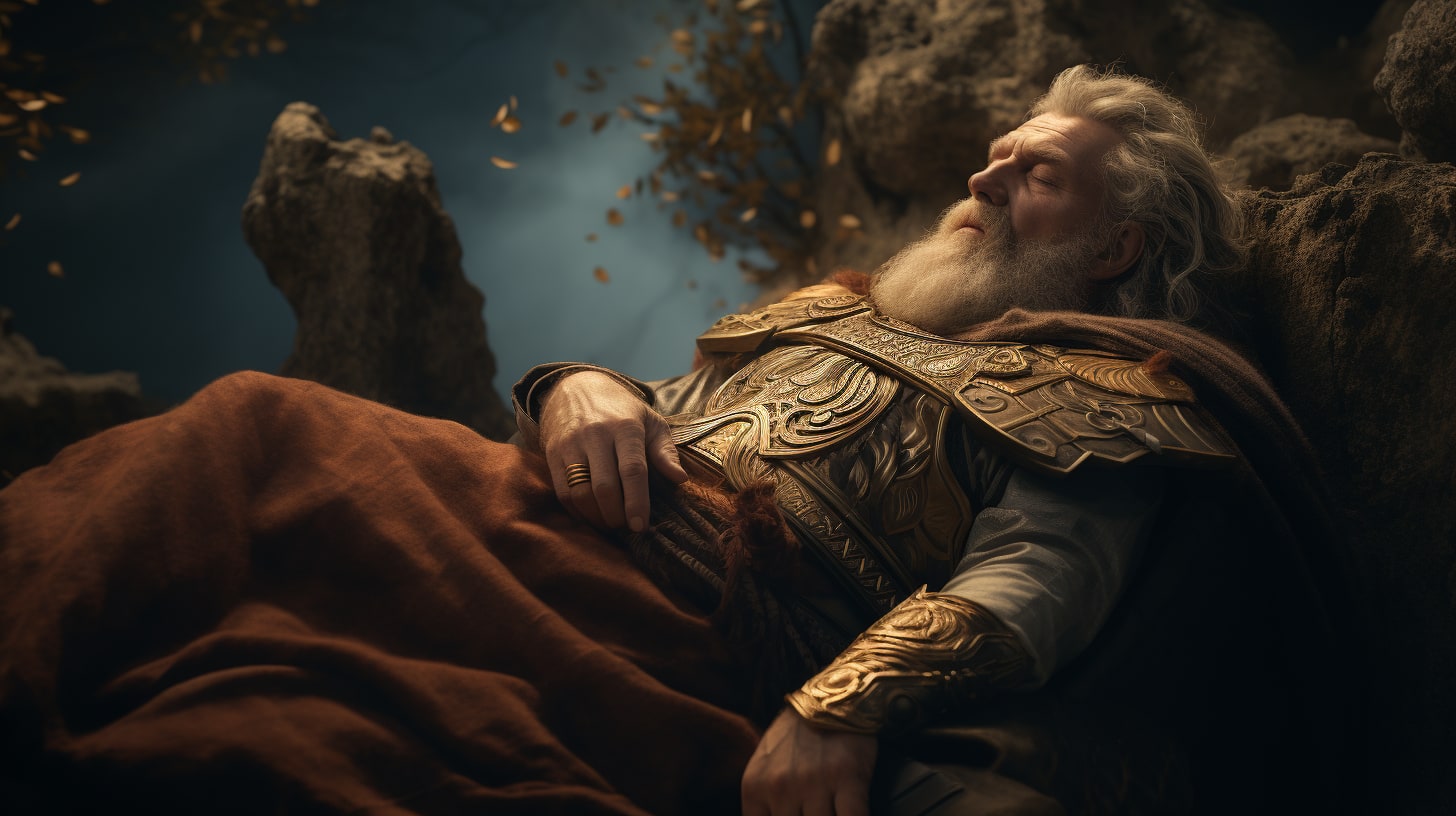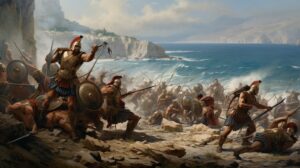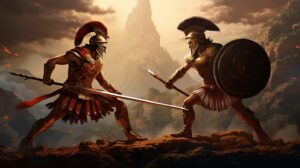Who directs the course of action in The Iliad?
This question receives a humorous anecdote in book 14 when Zeus is tricked by his own wife into sleep-inducing limb loosening in the Sapphic sense. With Zeus lulled to sleep, Poseidon can momentarily direct the course of action. The god Sleep tells Poseidon to “Fight for the Argives now with all your might! Now give them glory, if only a moment’s glory––long as Zeus still slumbers.” Poseidon proceeds to do so, shifting the tide of the war to the Greek’s favor.
When Zeus awakens in book 15, Hera says of Poseidon, “It must be his own great rage that drives him on––he pitied the sight of Argives pinned against their ships.” It’s interesting to note the language here of Poseidon’s rage, a clear callback to page 1, and actually word 1 of Fagles’ translation. But here, it is not the rage of Achilles nor the will of Zeus, but Poseidon’s rage that is currently directing the course of action.
Zeus responds by referencing the will, another reference to page 1. “…Poseidon, bent as he is to go his own way, must change at once and wrench his will to ours, to yours and mine united.” Here Zeus is strong-arming Hera into a dual will that Poseidon, and in extension the other gods, will be wrenched into following. Zeus will take back control.
Zeus’ nap (as Emily Wilson calls it) offers keen insight into the question of who directs the course of action in the Iliad. Rage and will interplay in a dance to death. But here, Poseidon inhabits both rage and will to bypass Achilles and Zeus, respectively. While Zeus slumbers, the action’s direction can be assumed by another.
It’s also interesting to note that Zeus cannot save his own son, Sarpedon. One could rightly assume that an omniscient god could easily arrange events in the same manner that Athena often averts the direction of a spear to save her favorites. When the killing gets personal, Zeus cannot, or perhaps will not, direct the course of action to save his own.
In book 15, Zeus provides a test for which the reader can determine if his will reigns supreme. Zeus says:
“But till that hour (when the Achaean armies seize Troy through Athena’s grand design) I will never cease my anger. Nor will I permit a single immortal god to save the Argive forces, not till Achilles’ prayer has been fulfilled. So I vowed at first. I bowed my head in assent that day the goddess Thetis clutched my knees, begging me to exalt Achilles scourge of cities.”
The test is to see if Zeus does allow a single immortal god to save the Argive forces. The gods do intervene again rather quickly, making it seem as though Zeus is either incompetent or ignorant, neither offering evidence for events following the “will of Zeus.” Further, it would seem Thetis’ will is more powerful than Zeus’ will in this case.
In book 16, amidst Sarpedon’s death and the coming retribution for Patroclus, the narrator says “But the will of Zeus will always overpower the will of men…” But will Zeus’ will overpower the will of the other gods?



